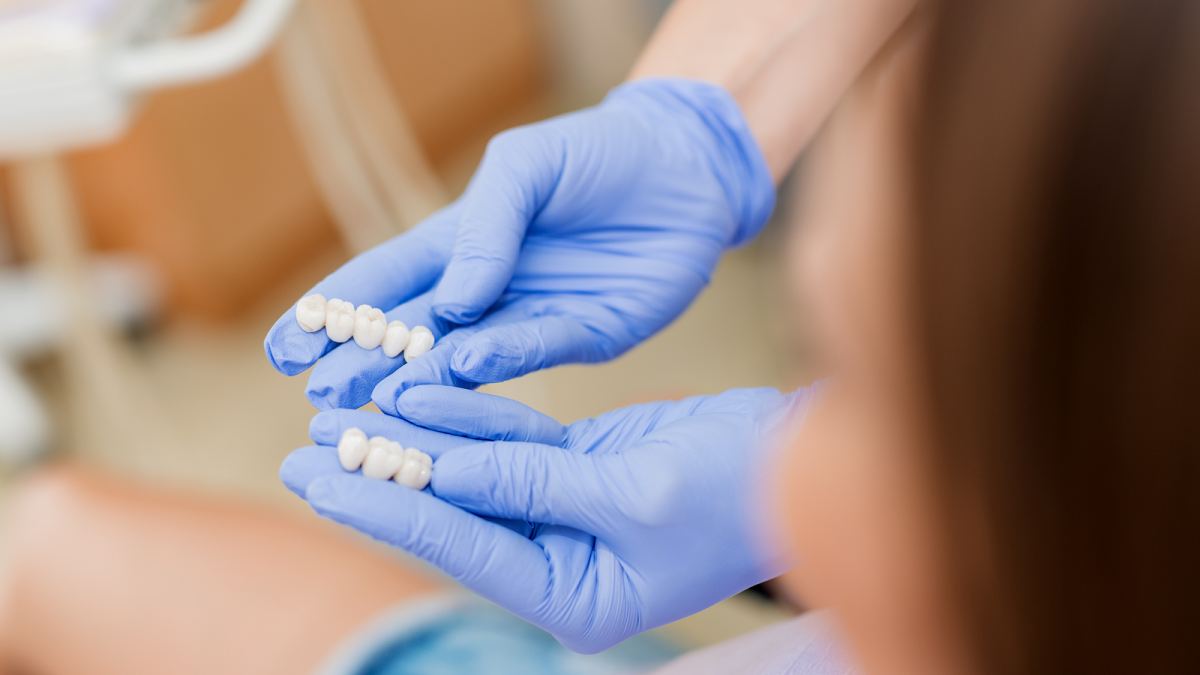When a tooth has served its useful life but is still good at the root, a dental crown is an option to restore the tooth. Adding a crown can improve a tooth’s function, size, shape, appearance and strength.
A dental crown is a ceramic or porcelain artificial tooth that completely encases the natural remaining portion of a tooth, from the top all the way to the gum line. If filling a tooth is no longer indicated, a dental crown is the next choice to restore the tooth.
When is a Dental Crown Needed?
There are many reasons why your dentist may recommend a dental crown. A crown could be indicated for your situation in the following scenarios:
- The tooth is broken, cracked or severely worn down
- To protect a weak tooth from breaking or cracking apart
- To hold dental bridges in place
- Cover up discolored or misshapen teeth
- To cover a large filling when there isn’t much of the tooth left
Types of Crowns
Crowns can be made of many different materials depending on the situation and the patient’s preference. Some typical types of materials crowns are made of include
- Stainless steel
- Metals
- All-resin
- Porcelain fused to metal
- Ceramic
Crowns can be permanent or temporary. Typically, a temporary crown is made in the dentist’s office and placed on the tooth while the permanent crown is being made. Permanent crowns are usually made in a dental laboratory.
There are many types of crowns. Your dentist will assess your situation and work with you to select the best crown type for your. Different types of crowns include
- Traditional Crowns
- Ceramic
- Empress Esthetic Crowns
- Implant Supported Crowns
- Crown Lengthening
The Process
Permanent crowns are placed on the teeth after a series of visits. FIrst, the tooth is reshaped to make room for the crown on all sides. The dentist may also have to build up the tooth to fit the crown if there is a lot of decay on the tooth.
Then, the dentist or hygienist will take an impression of your tooth and surrounding teeth to send to the lab. The lab will then make your permanent crown, ensuring that the fit, bite and color matches your surrounding teeth.
On the second visit, the dentist will fit your permanent crown and make any adjustments needed to make sure the crown is a comfortable fit.
Caring for a Crown
Typically, a crown will last anywhere from five to 15 years, depending on the care of the crown and other factors. It is important to remember that even though there is a crown on the tooth, it is still susceptible to decay and gum disease.
Problems you might have with a crown include discomfort or sensitivity at the nerve. Some of this discomfort can be repaired by using sensitivity toothpaste. Other problems that might occur in the long run include chipped crowns, loose crowns, or even a crown that falls off.
To improve the life of the crown, brush and floss as indicated, paying special attention when flossing to the area where the crown meets the gum line. Also, rinsing with mouthwash keeps the area clean.
Also, to improve the life of your crown, avoid habits like grinding or clenching your teeth, chewing ice, or using your teeth as a package opener.
Crowns are sometimes the best solution to an underlying problem. Utley Dental is happy to discuss any concerns that you might have if you need a crown.

